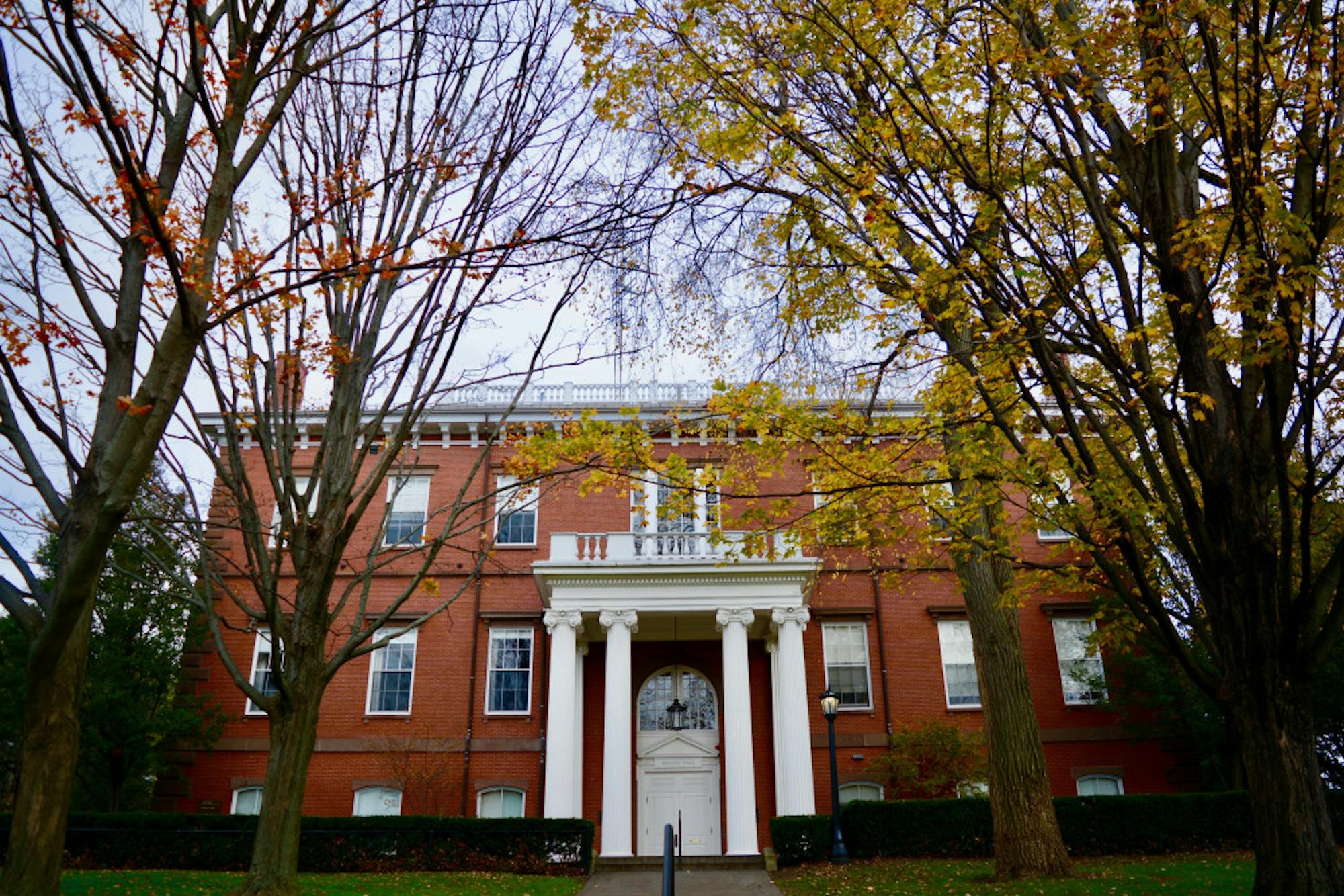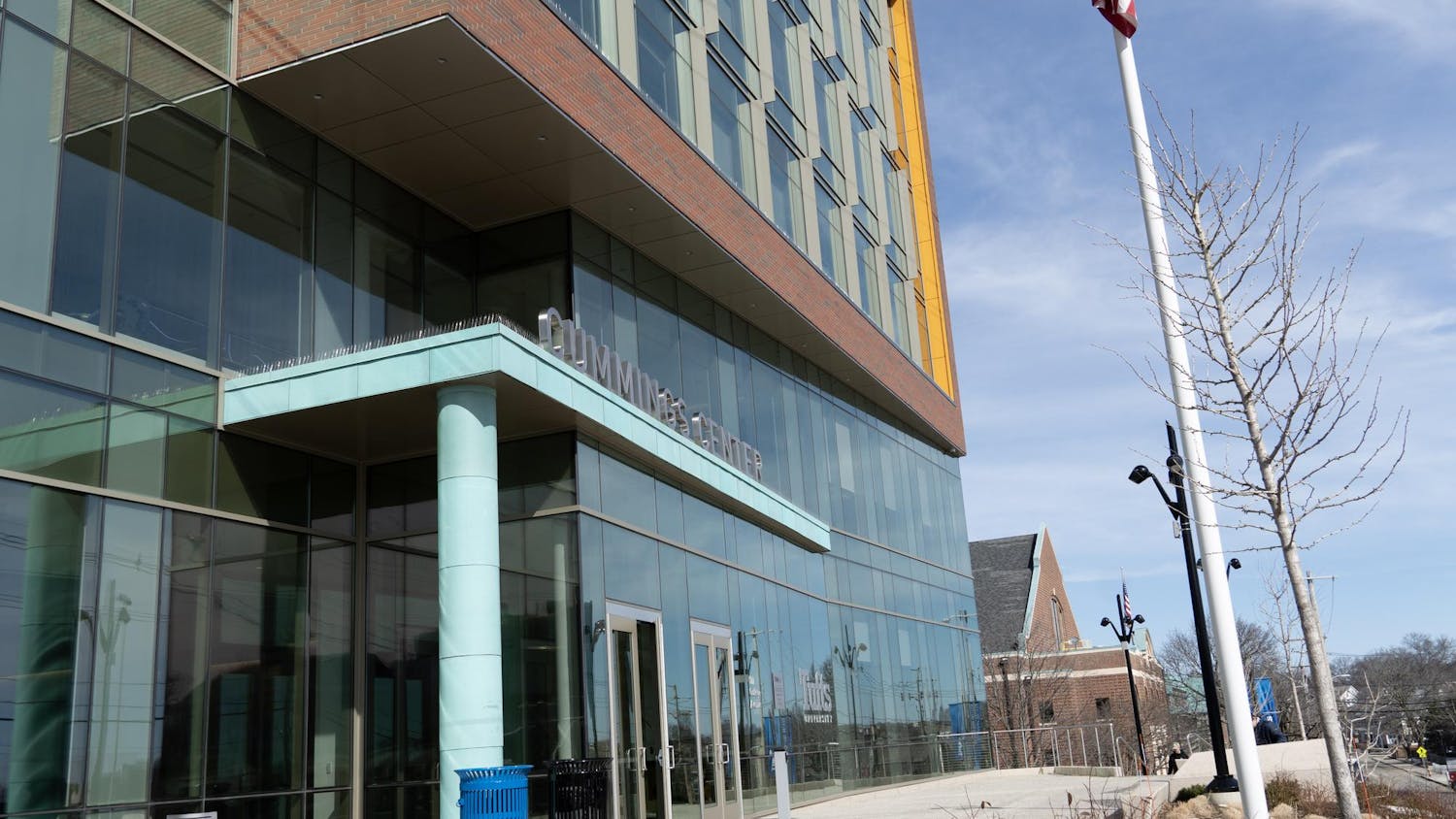The budget for the School of Arts & Sciences (A&S) is currently in a deficit, according to the Sept. 27 A&S faculty meeting minutes, which discussed the school's budget and financial situation. In the minutes, Executive Administrative Dean for Arts & Sciences Scott Sahagian emphasized that the deficit exists for good reason; the university is investing in academic buildings, housing, research and other areas.
"At present, our first quarter models are projecting a $7.5M budget deficit in A&S for this fiscal year," Dean of the School of Arts & Sciences James Glaser told the Daily in an email. "We’re trying to manage our spending and commitments this year to reduce that number to break even."
In the minutes, Glaser said that the university is working on fundraising and other measures to close the deficit.
“The fact is that we have made investments in the future of the institution that are critically important, but this also introduces some challenges,” Glaser told the Daily in an email. “We are in the process of meeting these challenges.”
According to Glaser, several factors led to the A&S budget deficit, including recent improvement projects.
“The new science buildings, as well as other investments in infrastructure on campus, have added new costs because we have to pay for their operation and the debt required to build them,” Glaser said.
Sahagian reiterated the importance of new university investments, including in the sciences and the School of the Museum of Fine Arts (SMFA) at Tufts. However, Glaser noted that the SMFA is not part of the A&S budget.
“We have made substantial investments in the arts, through the SMFA, the sciences, through the opening of the new SEC [Science and Engineering Complex] building, and in a host of other programs and improvements, such as increased financial aid and enhancement of our dorms,” Sahagian told the Daily in an email.
Glaser said that Tufts is facing similar challenges to universities across the country.
“Moreover, as is the case with most non-profits nationally, the university’s endowment has been spinning off smaller returns over recent years so the payout to A&S and other schools from the endowment has been reduced by the trustees,” Glaser said.
Glaser also mentioned other necessary projects and university responsibilities that affect the budget.
“We are making investments to update and improve our housing and dining and to comply with the Americans with Disabilities Act,” Glaser said. “We have new obligations because of the contracts we have negotiated with the part and full-time faculty unions.”
In terms of the overall university budget, Glaser explained that that each school has its own budget. These individual budgets can undergo periods of surplus and deficit, as can the university budget overall.
Senior Executive Director of the University Budget James Hurley confirmed that although schools share some costs, each school’s budget is independent.
“All colleges and universities, including Tufts, occasionally encounter budget challenges as a result of any number of factors,” Hurley told the Daily in an email. “And the schools within the university from time to time encounter budgetary challenges. When they do, we work collaboratively to address them.”
Glaser noted that despite these initial financial challenges, investments in the science buildings were necessary, as Barnum, Robinson and Anderson Halls were not sufficient to foster student success.
“The new teaching and research laboratories are now state-of-art and will allow for a better student experience as well as the potential for more successful research and more competitive research grants,” Glaser said.
Glaser added that there is still work to be done in terms of housing, including improving the quality of the buildings and making them more accessible. Specifically, Glaser named Miller and Houston Halls as priorities for renovating rooms, bathrooms and common rooms.
“There is a proposal to turn university-owned wood frame buildings into dormitories to help bring juniors and seniors back into Tufts-owned properties, enhance student life and provide relief as the rents in the neighborhoods go up,” Glaser said.
Director of Administration for the School of Arts & Sciences Tony Luongo elaborated on the ways in which housing costs factor into the A&S budget.
"Operating costs related to housing (heat, electricity, minor repairs), as well as the staff salary costs for residential life impact the A&S operating budget," Luongo told the Daily in an email. "Larger renovations are not part of the A&S operating budget, and are instead considered separately as part of our capital budget."
Sahagian emphasized that one factor contributing to the current deficit, the increased cost of health insurance, is affecting organizations across the country. However, he expressed confidence that Tufts will close the deficit.
“We’re working within the school and with our colleagues at the university level to address these challenges and move forward,” Sahagian said.
Hurley reiterated that the university is addressing the deficit through a number of strategies, and that discussions are ongoing.
“We’ve made some significant investments in the university in the last few years, such as the new science buildings and the SMFA,” Hurley said. “While these improvements are making a positive difference today and will continue to do so in the future, they do come with increased costs.”
School of Arts & Sciences addresses budget deficit






